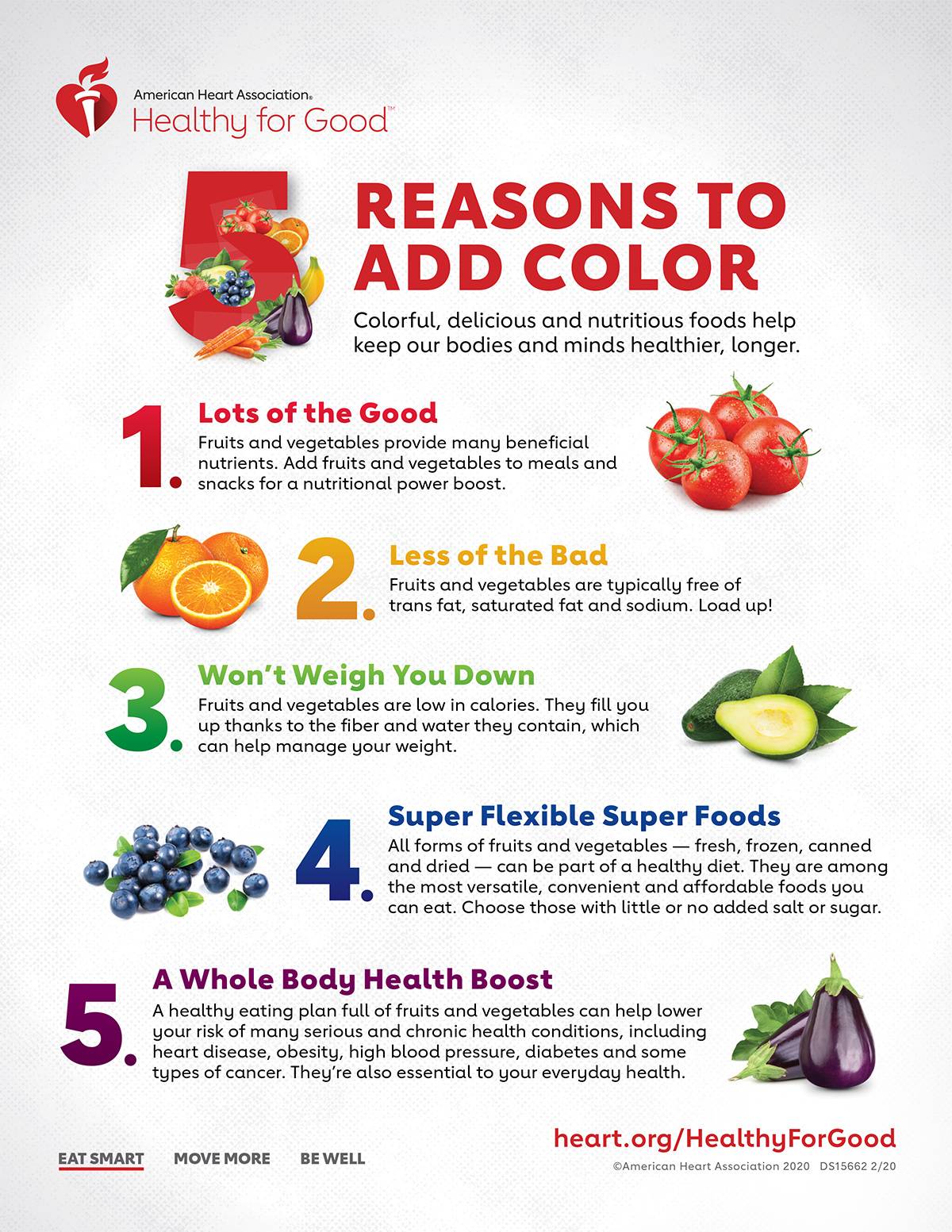Nutrition and Neurotransmitters: Week One
Nutrition: Understanding Micro and Macro Nutrients
The nutrients your body needs to promote growth and development and regulate bodily processes can be divided into two groups: macronutrients and micronutrients. Macronutrients are the nutrients your body needs in larger amounts, namely carbohydrates, protein, and fat. These provide your body with energy or calories. Micronutrients are the nutrients your body needs in smaller amounts, which are commonly referred to as vitamins and minerals.
Carbohydrates
Carbohydrates are the sugars, starches, and fibers found in fruits, grains, and vegetables. They’re the most important source of quick energy in your diet because they’re easily broken down into glucose, which the muscles and brain use to function. While carbs are found in healthy foods like vegetables, they’re also found in unhealthy foods like cakes and doughnuts, which has given them a bad reputation in various diets. The important distinction to make in this instance is between simple and complex carbohydrates. The difference between the two is the chemical structure which affects how quickly the sugar is absorbed by the body. Simple carbs, or ‘less healthy ‘carbs, generally release sugar faster because they are made with processed and refined sugar and don’t contain any vitamins, minerals, or fibers. A diet high in processed carbohydrates may lead to health problems such as diabetes, high blood pressure, and obesity. Complex, or ‘healthy carbs’, are processed more slowly and are filled with various nutrients. Incorporating healthy complex carbohydrates will promote health and help to prevent disease.
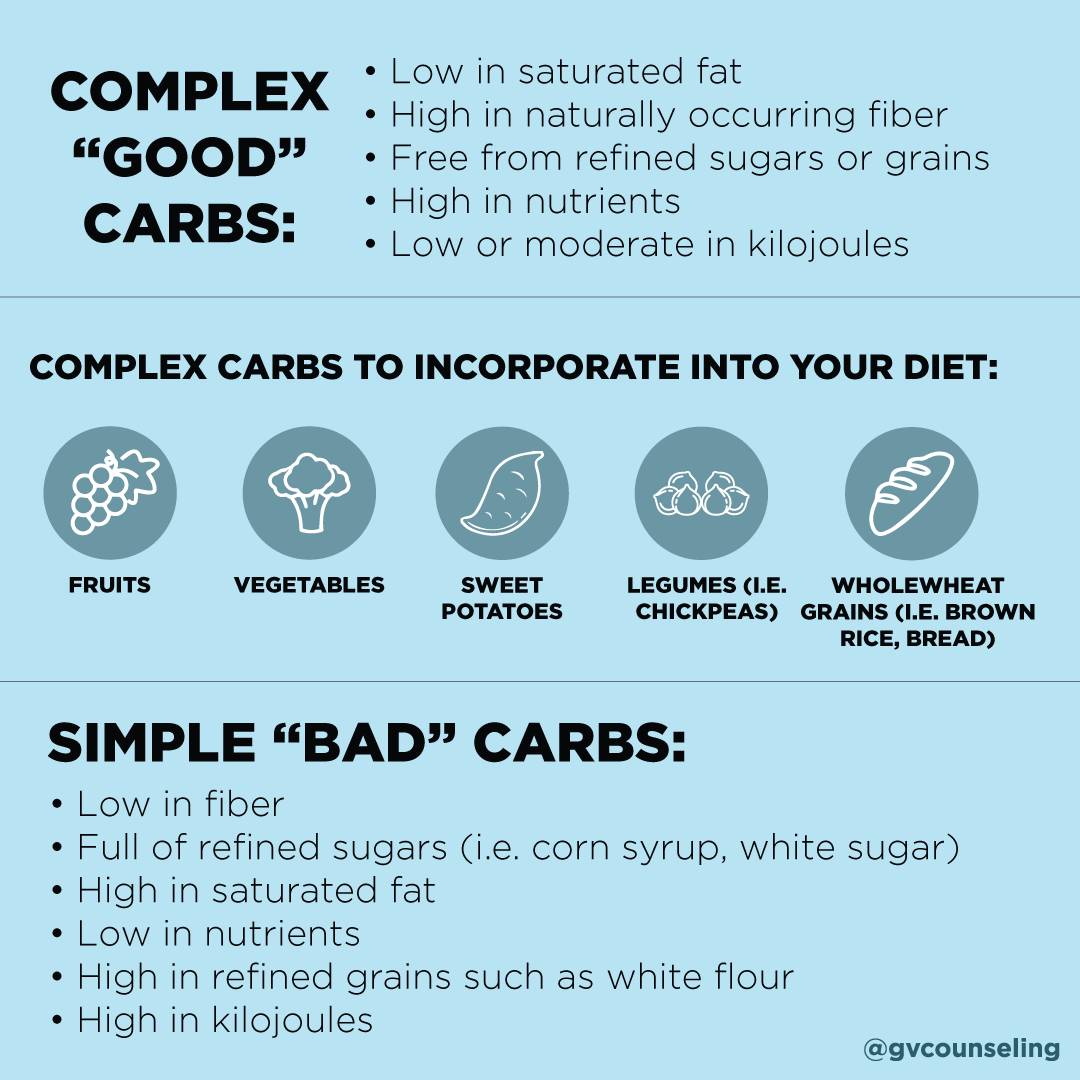
Proteins
Proteins are made up of amino acids and function as hormones, enzymes, and an antibody in the immune system. They make up parts of bodily structures like connective tissues, skin, hair, and muscle fibers. Unlike carbs, proteins don’t serve as a direct source of energy, but work like building blocks for other structures in the body. Animal products, such as meat and fish, contain all of the essential amino acids. Soy products, quinoa, and the seeds of a leafy green called Amaranth also contain all of the essential amino acids. Plant proteins usually lack at least one amino acid, so eating a combination of different plant proteins throughout the day is important for vegetarians and vegans.
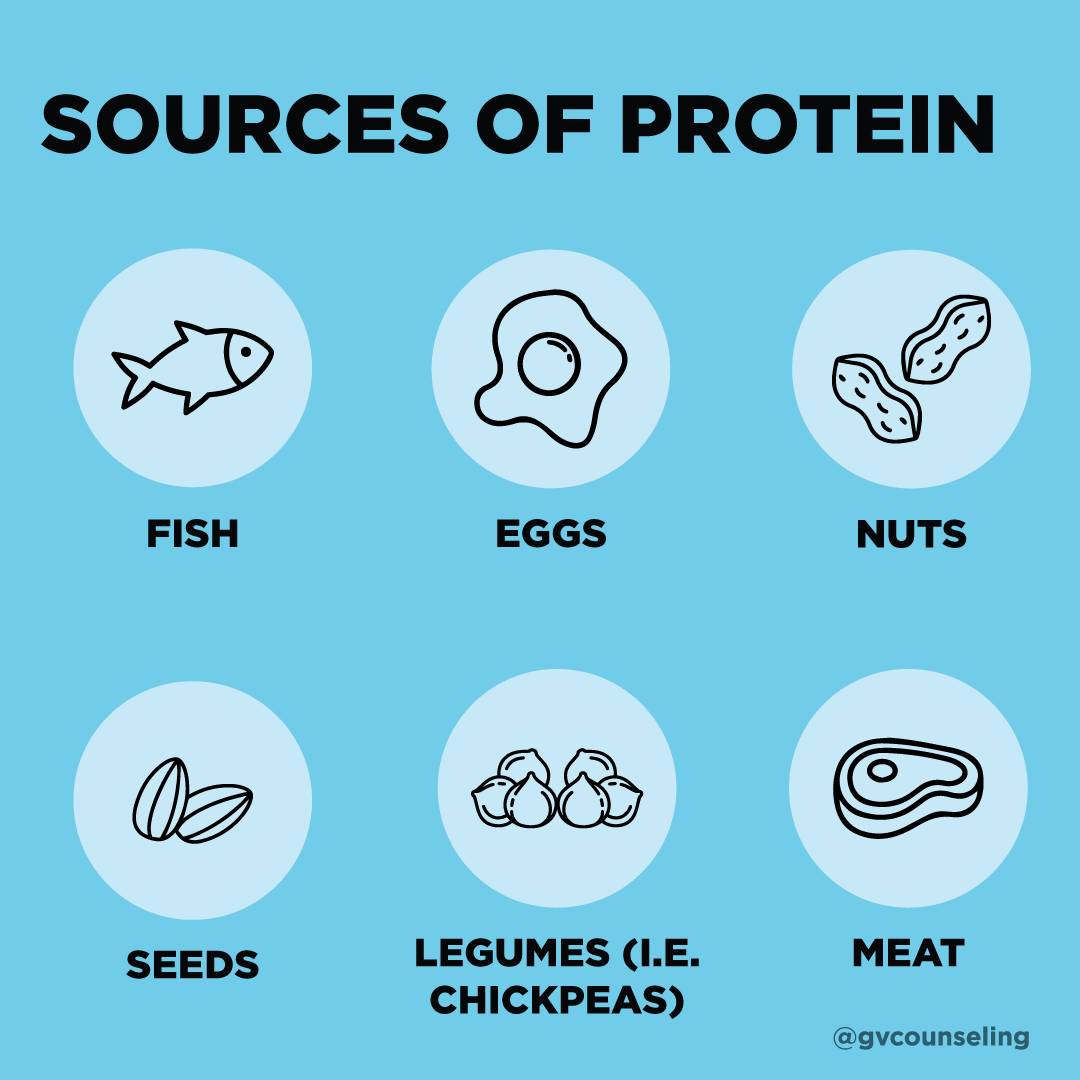
Fats
FATS The distinction between saturated and unsaturated fats is important because your body only needs the latter. Unsaturated fats regulate metabolism, maintain the elasticity of cell membranes, improve blood flow, and promote cell growth and regeneration. Fats are also important in delivering fat-soluble vitamins A, D, E and K into the body.
While your body doesn’t necessarily need saturated fats, they do provide your body with cholesterol, which plays an important role in hormone production. Your body does produce its own cholesterol, but a small amount introduced through your diet can help build cell membranes, produce hormones like estrogen and testosterone, help your metabolism work, produce vitamin D, and produce bile acids which help digest fat and absorb nutrients. However, a diet rich in cholesterol can increase the risk of heart disease.
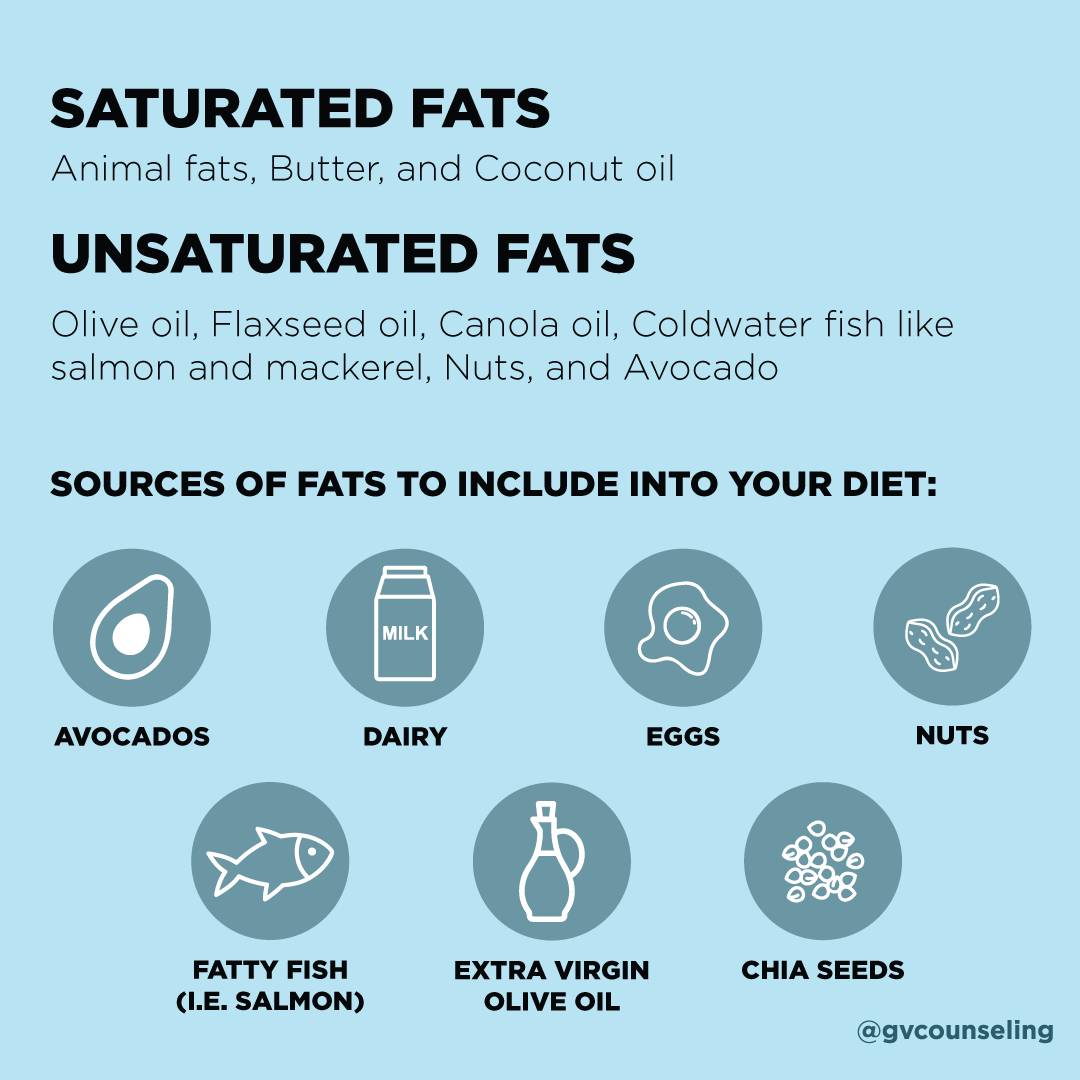
Micronutrients
MICRONUTRIENTS: Each vitamin and mineral have a specific role in your body, and the best way to ensure you’re meeting all your bodily needs is by eating a healthy, varied diet. Not only are micronutrients crucial for nearly every process in your body, they can also act as antioxidants. In the right quantity, they protect your body against disease and deficiencies. Eating a balanced diet including fruits and vegetables from all the colors in the rainbow will promote this and improve your chances of getting a variety of minerals and vitamins through your food into your bloodstream. While they work together, vitamins and minerals have different tasks in the body.
VITAMINS:
- One of the main functions of vitamins is to help release the energy found in the food that you eat
- Vitamins help build protein and help your cells multiply
- They make collagen, which helps heal wounds, support blood vessel walls, and promote healthy bones and teeth
- Vitamins keep your eyes, skin, lungs, digestive tract and nervous system in good condition
- They build your bones, protect your vision, and interact with each other to help your body absorb the vitamins it needs to
- They protect you against diseases
MINERALS:
- Minerals maintain the correct balance of water in your body
- They promote healthy bones and stabilize the protein structures that you get from the protein you eat, including those that makeup your hair, skin, and nails
- They get the oxygen moving around your body
- Minerals assist in your ability to taste and smell
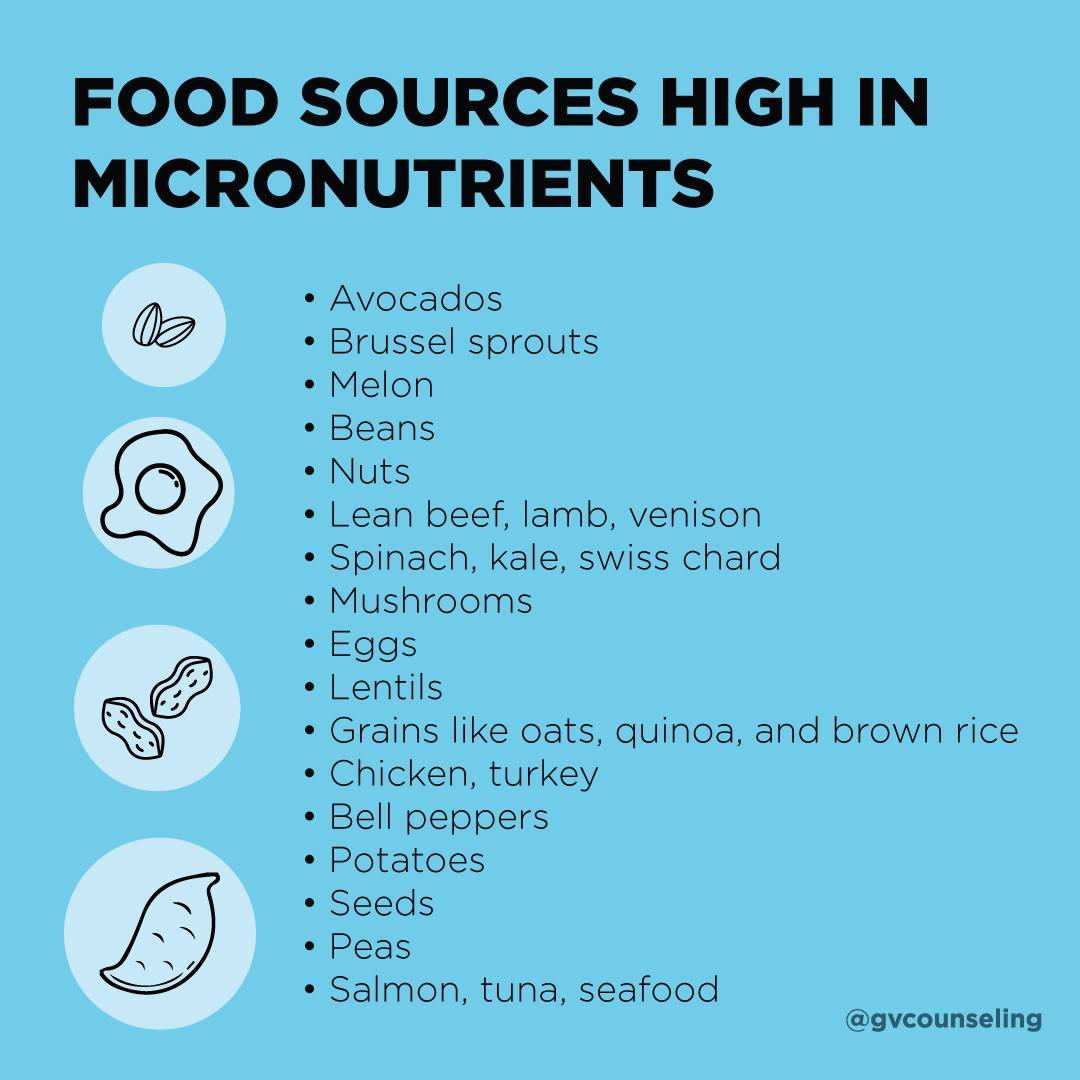
The more we learn about nutrition, the more it seems we should eat the way people did a hundred years ago. Hunters and Gatherers ate foods that were available seasonally, had modest portions available and did not have access to processed foods. Recent research appears to be pointing us in the direction of eating mostly "whole foods" – that is, foods that are as close to their natural form as possible. Over time, portions have become larger leading to the obesity epidemic we are faced with today.
Healthy Nutrition Tips
- Try to incorporate more baked and steamed protein and work to get fruits and vegetables at each meal
- Be mindful of sugar and work to reduce it by drinking less soda, not adding sugar on your cereal, and not using flavored creamer in coffee.
- Pay attention to portion sizes and when able use a smaller plate to place your food on
- Pay close attention to your body when eating and let your satiety signals guide your eating
- Meal prep healthy grab and go snacks and keep them in convenient places like your backpack, dorm room, and car. This will prevent you from getting processed snacks as the last result when hungry.
- Experiment with meatless Mondays!
Continue to Nutrition and Neurotransmitters Week Two


